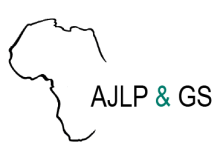Resource information
The livelihoods of hundreds of millions of people, particularly the rural poor, are based on secure and equitable access to and control over land and natural resources which are in turn the source of food and shelter, the basis for social, cultural and religious practices, and a central factor in economic growth. While each country’s unique tenure system and challenges require tailored responses, there is a need, common across most countries for substantial investments in land management and administration, to address those sections of society whose tenure rights are the weakest.With a focus on marginalized communities, women, small-scale food producers and local communities, this paper presents preliminary results from a gender-sensitive toolkit that is being piloted by ActionAid in Senegal, the Gambia, the Netherlands, and Australia to assess each country’s current legal framework and tenure governance arrangements, and foreign relations policies, against six key principles drawn from the VGGTs and the AU-F&G. The six principles detailed below are:1) Inclusive multi-stakeholder platforms2) Recognition of customary rights and informal tenure3) Gender equality4) Protection from land grabs 5) Effective land administration6) Conflict resolution mechanismsWhile the findings are impressive in some countries, there remain some glaring gaps in others where urgent actions need to be made. A comprehensive understanding of the guidelines by the women and communities in general proved to be key for them to hold their governments to account for the commitments to


